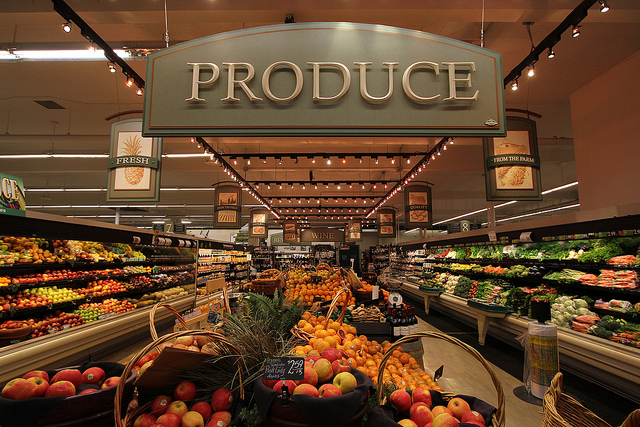In these days of extreme couponing, it may seem that the only way to get good deals on food is to scour the ads and clip the right coupons. But if you consider how much time you are investing to save a few cents, then is it really worth it? Instead, there is a better way. Skip the coupons and follow these simple tips and you can cut your grocery bill nearly in half. The best part is no coupons that expire while you’re on the road, and no worries about missing out on great deals.
Stock Up When it’s On Sale
The best way to save money is to watch the sales. This doesn’t mean that you need to subscribe to multiple store circulars, or really even hunt that hard for a sale. Here is what it looks like:
You know what foods you eat the most. If not, just watch your spending and eating habits for about 2 weeks and you will have a good idea of what you need.
You have to shop anyway, so pay attention to when things go on sale. If you’re feeling bold, you could even ask the store manager for some sort of schedule (they will likely tell you they don’t have a schedule, but they really do).

When your favorite items are on sale, buy 2 or 3 times as much as you actually need. Then simply freeze, or otherwise store, the extras for use at a later time.
How much can you save with this method? It all depends on what you eat the most. Let’s suppose you love grilled chicken and you eat 3 pounds per week. At $4 per pound you are spending $624 every year on chicken if you don’t shop the sales. But chicken will regularly go on sale every couple of weeks or so and be marked at $2 per pound. If you buy enough to last until the next sale, you have just saved over $300. Buy even more in bulk and you don’t have to worry about missing the next sale.
Most sales run from mid-week to mid-week. So even if you are driving truck 4 or 5 days at a time, you can still catch these sales. If the store is out of an item you want, ask for a rain check; almost every store will give them.
Stock Up When it’s In Season
There is a season for everything; even non-seasonal items. It all depends on when people are buying and when people are not.
Fruits and vegetables go through seasons as we all know. So buying sweet corn in the spring will run you quite a bit of money (and the corn will likely taste terrible). But if you wait until the fall you can buy fresh corn for about a dime per ear.
Pay attention to what items are in season, and stock up on your favorites. Then it’s just a matter of storage, but don’t worry, almost everything can be frozen. Items like condiments, hamburger and hot dog buns, and others drop in price starting around Memorial Day, fruits like oranges and other citruses are in season during the winter. Even canned items have a season when there is abundance (generally shortly after that items harvest season).
Find Storage
The only way this will actually save you money is if you are able to properly store the items. There is no sense in buying a dozen loaves of bread, and then letting them all get moldy while you are running a shipment across the country. Instead, you need to invest in storage.
Investing in a chest freezer is a great way to store almost everything. Individually package your meats, portion out your veggies, and stick them in the deep freezer. If properly wrapped, they will last for months or even years. What this means is that you can buy in bulk, freeze it for the long term while you’re on the road, and then over the weekend, you can prepare your meals for the coming week while you will again be out driving.
For those who live in a humid climate, it is important to take the moisture out of the air for a lot of items. This means a frostless freezer will help you store dry goods (if you have the space); otherwise you need air-tight containers. High quality containers that hold at least a box of cereal will run about $8 each, so pick up 2 or 3 and you can keep cereal (and other dry goods) almost indefinitely. Freezer proof storage containers are a little more than 50 cents each and can hold your fruits, veggies, soups, and salsas for quite a while.
Skip the Coupons and Stock Up
If you happen to find a coupon for something you buy regularly, you might as well use it. But you have better things to do with your time than hunting for coupons for hours that will end up saving you just a couple of dollars.
Instead of couponing, follow the ads and stock up when it is reasonable. You could easily see your food bill get cut in half.
Image Source - https://www.flickr.com/photos/i5design/